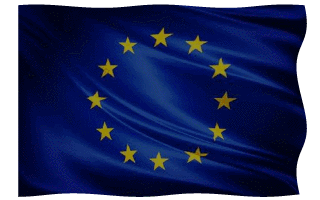The European Teacher


What is 'The European Teacher'?
'The European Teacher' is a specialist module that only ITEP-students have. We as students are sent to schools all around Europe in pairs, where we will be working side by side with the local teachers. We will observe and teach during our two months at the schools and have online-teaching from Metropolitan Univerity College one's a week. These lessons will have a focus on comparing the different aspect of what we are seeing at our school to a Danish context.
You can find out more about my teaching methods, didactic thoughts, lesson material and much more from the internship, by using the link 'My Internship In Nice', just above this. I have also made a personal development plan before going to my internship, which you can find by using the link 'Personal Development Focus'.
Why this page?
This page is not mandatory, so why do it at all? To get where I have to be at the end, I need to understand the path that can take me there. This is of getting from one point to another is a form of John Hatti's 'Visible Learning' strategy. I need to get to the point where I have reached the attended target goals and to do so, I have to make a plan to make the path to these targets visible. When during so, I have a strategy for how I will get from point A to point B and also a tool to reflect if the path was the correct one and if not, where did I need to change my direction and why.
What is the purpose of the module 'The European Teacher'?
If we look at what the written purpose of the module 'The European Teacher' says:
-
To strengthen intercultural competencies.
-
Give insight and experience about how the didactic and pedagogical focus is in another country.
-
Strengthen the students own view on one's own cultural standingpoint and implicit and explicit professional values through comparative work.
-
Give the student knowledge and experience about other methods in teacher academic work.
-
Give the student experience about working analytically about one own's pratic through fieldwork.
So how do I accomplish this?
First of all, I need to analyse the bullet points to find out how I can accomplish the target goals. So underneath you will find an analytical review of each point and a blueprint of how I will accomplish the tasks. After the internship, I will reflect on my development throughout the internship and how I was able to reach the targets.
To strengthen intercultural competencies.
First of all, I need to look at, what are intercultural competencies? The Danish Ministry of Education defines intercultural competence as "An individual insight into one own's ability to understand the everyday cultural complexity and be able to communicate unprejudiced with humans from other cultures." (http://static.uvm.dk/Publikationer/2005/NKRrapport/kap09.html)
According to the Danish Ministry of Education "Intercultural competence is a competence, which does not unfoldes in a curtain arena but it is greatly connected to work-life, your civil life and thought education" (http://static.uvm.dk/Publikationer/2005/NKRrapport/kap09.html).
When taken quote one and two into consideration, I'll have to live, work, educate and communicate with others in another culture to be able to gain intercultural competencies.
So, I will be going to Nice, France on an internship, where I will be living as a normal Frenchmen and working as a normal French teacher for sixty days during the fall of 2017. Throughout this period of time spent in France, I will have to communicate unprejudiced with humans (students, teachers, the woman in the supermarket etc.) from other cultures. I'll be working as a teacher and be living my normal civil life in another culture.
Give insight and experience about how the didactic and pedagogical focus is in another country.
At my internship as a teacher at a school in France, I will observe the 'normal' teachers conducting their teaching. While during this, I will take notes of how they are conduction their teaching and which methods they are using. Then I will compare those to what I have learned at Metropolitan Unversity College. I will ask my internship teachers what their reasoning was behind a curtain didactic or pedagogical thought. In this way, I will get an understanding of how and why they do as they do in this particular school in France.
Strengthen the students own view on one's own cultural standingpoint and implicit and explicit professional values through comparative work.
When comprising one's own cultural standpoint to another culture, one must, first of all, understand one's own. I'm at this time 30 years old and though my work and education, I have a pretty good understanding of the Danish culture both inside and outside a classroom. To compare these cultures to each other, I will have conversations with my internship teachers and also use the online teaching once a week from home, to help me get these aspects into context and in that manner to be able to compare them on a more proper basis.
Give the student knowledge and experience about other methods in teacher academic work.
By working side by side with teachers from another country, one will nearly automatic be experiencing new methods of ways to teach and work as a teacher. By observing and working 'independently' as a teacher and be giving feedback from the observing part, I will be getting knowledge of different methods.
Give the student experience about working analytically about one own's pratic through fieldwork.
When working as a teacher-student is it very important that one reflects on one's own work and progression. I will do this, by setting personal goals for the internship, both academic and on a more personal level, I will make a side on my portfolio about the work, I have done with didactic thoughts and much more.
In the end, I will have to deliver a paper which will be an analytic view of what my student partner and I have done throughout our internship.

CIMO-competencies

